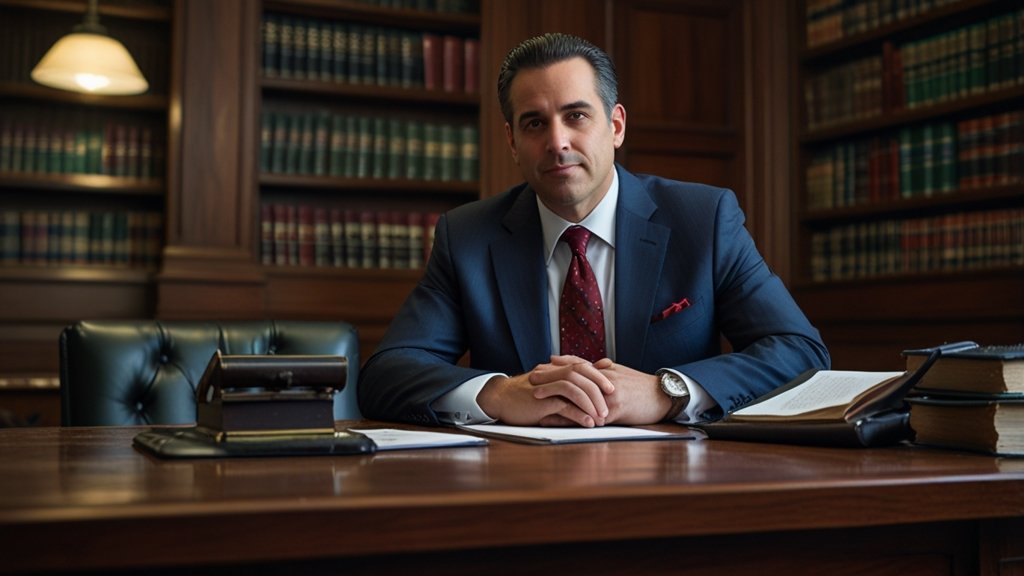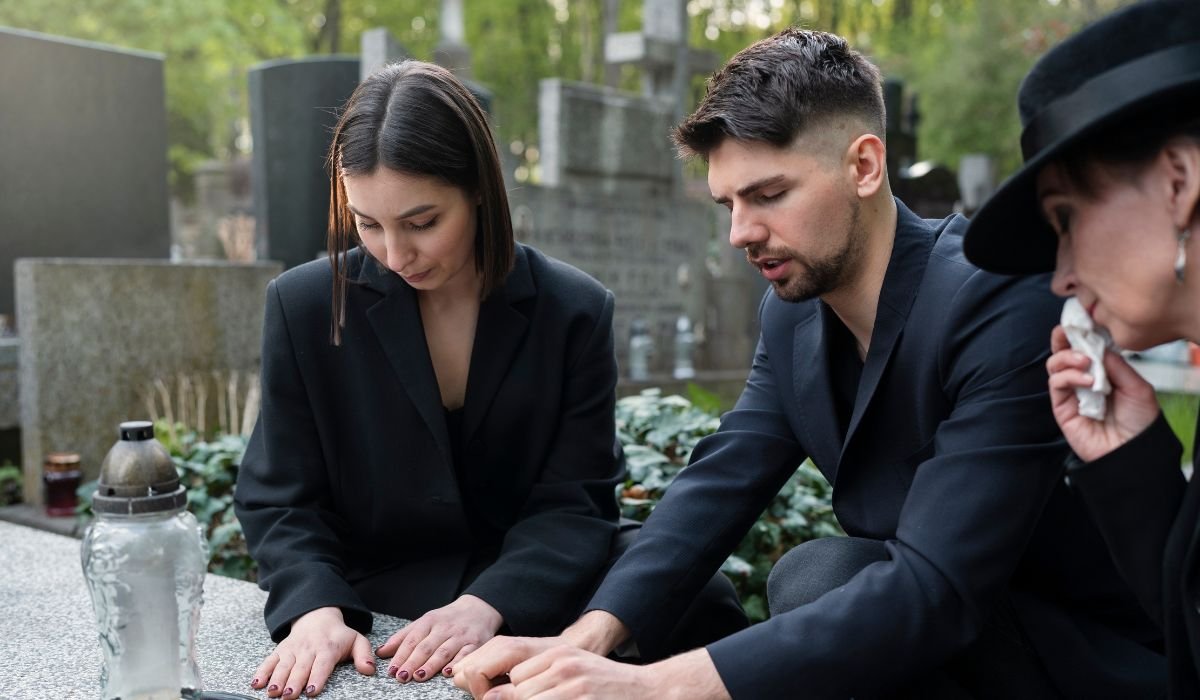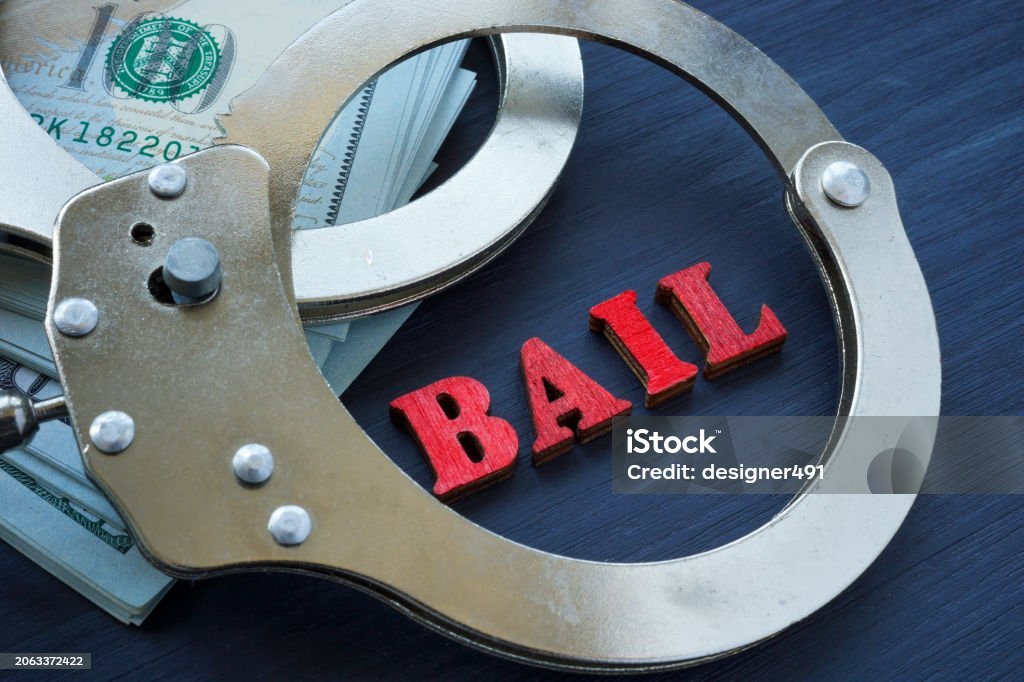Financial storms can hit anyone. Mounting bills, unexpected job loss, or overwhelming medical debt can feel like drowning. For Staten Island residents facing this harsh reality, finding a trustworthy guide is crucial. The Law Office of Kevin Zazzera stands as a beacon of hope. Kevin B. Zazzera, a highly experienced and well-regarded consumer bankruptcy attorney, dedicates his practice to helping individuals navigate the turbulent waters of personal financial crisis. With deep empathy, unwavering professionalism, and a singular focus on securing fresh starts for his clients, Kevin specializes in guiding people through Chapter 7 and Chapter 13 bankruptcy filings. His Staten Island-based firm isn’t just about legal procedures; it’s about restoring dignity and paving the way toward a brighter financial future.
Why You Absolutely Need a Skilled Bankruptcy Attorney
Facing bankruptcy alone is like sailing a stormy sea without a map or compass. The process involves complex federal laws, intricate paperwork, strict deadlines, and critical court appearances. Mistakes can be costly, potentially leading to dismissed cases, lost assets, or denied debt relief. A knowledgeable bankruptcy attorney is your essential navigator. They understand the nuances of the Bankruptcy Code, protect your rights, manage creditor harassment, and ensure all procedures are followed correctly. Furthermore, they provide invaluable advice on whether bankruptcy is your best option and, crucially, which chapter fits your unique situation. Without expert guidance, you risk making errors that could jeopardize your chance for the fresh start you desperately need. Therefore, partnering with a seasoned professional like Kevin Zazzera is not just helpful; it’s often vital for a successful outcome.
Understanding Your Options: Chapter 7 vs. Chapter 13 Bankruptcy
Bankruptcy isn’t one-size-fits-all. The two primary chapters for individuals, Chapter 7 and Chapter 13, serve different purposes and have distinct eligibility requirements and outcomes. Understanding these differences is the first step toward reclaiming control. Kevin Zazzera excels at explaining these complex options in clear, understandable terms, helping clients make informed decisions about their financial futures.
- Chapter 7 Bankruptcy (Liquidation): Often called “straight bankruptcy,” Chapter 7 is designed for individuals with limited income who cannot repay their debts. It involves liquidating non-exempt assets to pay creditors, though most basic assets (like household goods, a modest car, and retirement accounts) are protected by state and federal exemptions. Significantly, any remaining eligible unsecured debts (like credit cards and medical bills) are typically discharged, meaning you are no longer legally obligated to pay them. The process is relatively quick, usually concluding within 3-6 months. However, eligibility is based on passing the “means test,” which compares your income to the state median.
- Chapter 13 Bankruptcy (Reorganization): Known as the “wage earner’s plan,” Chapter 13 is for individuals with a regular income who can repay at least a portion of their debts over time. Instead of liquidation, you propose a 3-to-5-year repayment plan to the court. This plan consolidates your debts, and you make one manageable monthly payment to a bankruptcy trustee, who then distributes the funds to creditors. Crucially, Chapter 13 allows you to keep valuable assets like your home or car, even if you’re behind on payments, by catching up through the plan. It also stops foreclosure and can address other secured debts. At the successful completion of the plan, remaining unsecured debts are discharged.
Chapter 7 vs. Chapter 13 Bankruptcy: Key Differences at a Glance
| Feature | Chapter 7 Bankruptcy | Chapter 13 Bankruptcy |
|---|---|---|
| Primary Purpose | Debt discharge through liquidation of non-exempt assets. | Debt reorganization through a court-approved repayment plan. |
| Best For | Individuals with limited income & primarily unsecured debt they cannot repay. | Individuals with regular income who want to keep assets (like a home/car) & can repay some debt over time. |
| Process Length | Relatively quick (Typically 3-6 months). | Longer term (3 to 5 years under court supervision). |
| Asset Impact | Non-exempt assets may be sold by a Trustee. | Allows debtors to keep all property, including non-exempt assets, by making plan payments. |
| Income Requirement | Must pass the “Means Test” (income below state median or insufficient disposable income). | Must have regular income sufficient to fund the repayment plan. |
| Secured Debt | Can surrender property or reaffirm the debt. | Allows catching up on missed mortgage/car payments to avoid foreclosure/repossession. |
| Debt Discharge | Discharges eligible unsecured debts after liquidation. | Discharges remaining eligible unsecured debts after successful plan completion. |
Kevin Zazzera’s Empathetic and Professional Approach to Your Fresh Start
What truly sets the Law Office of Kevin Zazzera apart is Kevin’s profound understanding that bankruptcy is more than just a legal process; it’s an intensely personal and often stressful life event. Kevin approaches every client with genuine empathy. He recognizes the fear, shame, and uncertainty that often accompany financial distress. Consequently, he takes the time to listen carefully to each client’s unique story, understand their specific goals, and address their concerns without judgment. This compassionate foundation, however, is perfectly balanced with rigorous professionalism and deep legal expertise.
Kevin leverages his extensive experience to develop clear, strategic pathways tailored to each individual’s circumstances. He meticulously explains every step, demystifying complex legal jargon and ensuring clients feel informed and empowered throughout their journey. His focus remains steadfastly on achieving the optimal outcome: a true financial fresh start. Kevin’s reputation in Staten Island is built on this powerful combination of caring support and effective, results-driven legal representation. Clients consistently appreciate his ability to alleviate their burdens while fighting tenaciously for their rights and their future.
Navigating the Bankruptcy Process with Kevin Zazzera
Filing for bankruptcy involves several key steps, but with Kevin guiding you, the path becomes manageable and clear. Here’s an overview of the typical process at the Law Office of Kevin Zazzera:
- Initial Consultation (Free & Confidential): Your journey begins with a no-obligation, free consultation. Kevin will sit down with you (in person or virtually) to discuss your financial situation in detail. He will review your debts, assets, income, and expenses. Importantly, this is your opportunity to ask questions and voice your fears. Kevin will then analyze your options, explaining whether Chapter 7, Chapter 13, or an alternative solution is most appropriate for your goals.
- Thorough Preparation and Paperwork: If you decide to proceed with bankruptcy, Kevin and his team will meticulously gather all necessary financial documentation. They handle the complex preparation of your bankruptcy petition, schedules, and other required forms. Accuracy is paramount here; Kevin’s experience ensures every detail is correct, avoiding delays or complications.
- Filing the Petition & Automatic Stay: Once prepared, Kevin files your petition with the Bankruptcy Court. Critically, this filing triggers the “automatic stay.” This powerful legal injunction immediately stops virtually all collection actions against you. Creditors must cease calls, letters, lawsuits, wage garnishments, and even foreclosure proceedings. This immediate relief is often the first tangible step towards peace of mind.
- Meeting of Creditors (341 Meeting): Approximately 4-6 weeks after filing, you will attend a mandatory hearing called the “Meeting of Creditors” or “341 Meeting.” Kevin will prepare you thoroughly for this meeting and attend it with you. Presided over by the bankruptcy trustee (not a judge), this meeting allows the trustee and creditors (who rarely attend consumer cases) to ask questions about your petition under oath. Kevin’s presence ensures you are protected and supported.
- Plan Confirmation (Chapter 13) or Asset Administration (Chapter 7):
- Chapter 13: Kevin will work with you to develop a feasible repayment plan. He then presents this plan to the court and creditors, advocating for its confirmation. Once confirmed, you make your monthly payments to the trustee for 3-5 years. Kevin monitors the process, assisting with any modifications needed due to life changes.
- Chapter 7: The bankruptcy trustee reviews your assets to determine if any non-exempt property exists to sell for creditors. Kevin ensures all exemptions are properly applied to protect your essential belongings. If there are no non-exempt assets (as is common in many cases), this step is typically straightforward.
- Financial Management Course: Before receiving your discharge, you must complete a mandatory debtor education course. Kevin provides information on approved providers.
- Discharge of Debts: This is the ultimate goal! For Chapter 7, the discharge order is typically issued about 60-90 days after the 341 Meeting, wiping out eligible debts. For Chapter 13, the discharge is granted after you successfully complete all plan payments. Kevin ensures this final step is processed smoothly, marking your official fresh start.
Debunking Common Bankruptcy Myths
Misinformation about bankruptcy abounds, often preventing people from seeking the help they need. Kevin Zazzera prioritizes educating his clients, dispelling these harmful myths:
- Myth: Bankruptcy Means I Lose Everything I Own.
- Reality: Bankruptcy laws provide generous exemptions to protect essential property. Most Chapter 7 filers keep all their assets, including their home (up to a certain equity amount), car, household goods, clothing, and retirement accounts. Chapter 13 is specifically designed to help you keep assets like your house and car by catching up on payments.
- Myth: I Will Never Get Credit Again.
- Reality: While bankruptcy does impact your credit score initially, it’s often higher than the score ruined by delinquent debts and collections. Furthermore, rebuilding credit is absolutely possible, often starting sooner than people think. Many clients receive credit card offers (albeit sometimes with higher rates initially) and can qualify for auto loans or even mortgages within a few years of discharge, especially with responsible financial habits.
- Myth: Everyone Will Know I Filed for Bankruptcy.
- Reality: While bankruptcy filings are public records, they are not published in local newspapers like they once were. Unless someone specifically searches federal bankruptcy court records (which is uncommon), your friends, neighbors, or casual acquaintances are unlikely to know. Your employer is generally not notified unless you owe them money or choose to inform them.
- Myth: Only Financially Irresponsible People File for Bankruptcy.
- Reality: Bankruptcy is most often the result of unavoidable life events, not poor choices. Medical emergencies, job loss, divorce, natural disasters, or the death of a spouse are common triggers. Responsible people find themselves overwhelmed through no fault of their own. Bankruptcy is a legal tool designed precisely for these situations.
- Myth: I Can’t File if I Owe Taxes or Student Loans.
- Reality: While certain taxes and most student loans are generally non-dischargeable, bankruptcy can still provide significant relief. Chapter 13 can stop IRS collection efforts and allow you to repay tax debts over time within your plan, often without penalties and interest accruing further. It can also consolidate student loan payments and stop collections, harassment, and wage garnishments related to them, even if the debt itself isn’t wiped out.
Why Staten Island Residents Choose Kevin Zazzera
In a field requiring both legal precision and deep human understanding, Kevin Zazzera stands out for numerous reasons. First, his extensive experience specifically in consumer bankruptcy law means he has encountered virtually every scenario and knows how to navigate complexities efficiently. Second, his deep roots and practice in Staten Island provide invaluable local knowledge – he understands the local courts, trustees, and the specific economic challenges facing the community. Third, his commitment to personalized, compassionate service ensures clients are treated with respect and dignity, never just as case files. He makes himself accessible, promptly returning calls and clearly explaining developments.
Moreover, Kevin’s reputation for professionalism and effectiveness is well-earned. Client testimonials consistently highlight his calming presence, thorough explanations, and successful outcomes. He builds trust by being honest about the process and potential outcomes. Ultimately, choosing Kevin means choosing an advocate who genuinely cares about guiding you from financial despair to a stable, hopeful future. His proven track record in securing discharges and fresh starts for Staten Island residents makes him a trusted partner in financial recovery.
Conclusion:
Financial hardship can feel isolating and overwhelming, but you don’t have to face it alone. The Law Office of Kevin Zazzera offers Staten Island residents a proven path out of debt and towards a secure future. Kevin Zazzera’s unique blend of deep bankruptcy expertise, local knowledge, unwavering professionalism, and genuine empathy provides clients with the support and guidance necessary to navigate Chapter 7 or Chapter 13 successfully. He dispels myths, protects your rights, manages complex legal procedures, and relentlessly pursues the goal of a financial fresh start. If debt is controlling your life, take the first step towards regaining control. Contact Kevin Zazzera today for a free, confidential consultation. Discover how his dedicated legal representation can help you overcome financial crisis and build a brighter tomorrow.
Frequently Asked Questions
- Q: How much does it cost to hire Kevin Zazzera for bankruptcy?
- A: The Law Office of Kevin Zazzera offers a free initial consultation to discuss your situation. Fees vary depending on the complexity of your case (Chapter 7 vs. Chapter 13) and are clearly explained upfront. Kevin understands financial strain and works with clients on payment plans to make legal representation accessible. Court filing fees are separate but known in advance.
- Q: Will filing for bankruptcy stop my creditors from calling me?
- A: Yes, absolutely! One of the most immediate benefits is the “automatic stay.” As soon as Kevin files your bankruptcy petition with the court, this powerful legal protection goes into effect. It forces creditors to immediately stop all collection efforts, including phone calls, letters, lawsuits, wage garnishments, and foreclosure actions.
- Q: Can I keep my car and my house if I file bankruptcy with Kevin Zazzera?
- A: In most cases, yes. New York bankruptcy exemptions allow you to protect significant equity in your home and vehicle. Kevin will carefully analyze your assets and apply all applicable exemptions to shield them. If you are behind on payments, Chapter 13 is specifically designed to help you catch up on mortgage or car loans over time and keep the property.
- Q: How long does the bankruptcy process take with Kevin Zazzera?
- A: The timeline depends on the chapter. A straightforward Chapter 7 case typically concludes (with debt discharge) within 3-6 months of filing. A Chapter 13 case involves a court-approved repayment plan lasting 3 to 5 years, with the discharge granted after successfully completing all plan payments. Kevin guides you efficiently through each phase.
- Q: Is there life after bankruptcy? Can I rebuild my credit?
- A: Absolutely! Bankruptcy is designed as a fresh start. While it initially impacts your credit score, eliminating or restructuring overwhelming debt often puts you in a much stronger position to rebuild. Kevin can provide guidance on post-bankruptcy credit rebuilding strategies. Many clients see their credit scores improve within a year or two and are able to obtain credit cards, auto loans, and even mortgages again by demonstrating responsible financial behavior.
YOU MAY ALSO LIKE: The Isotonix Lawsuit: Unpacking the Legal Storm Behind the Supplements and MLM Hype











